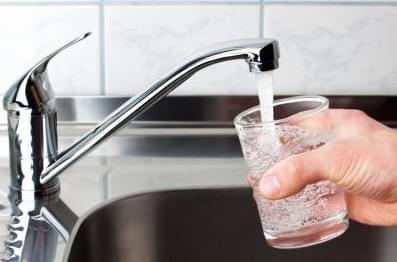In accordance with City ordinance 52.17, upon notification by the City Manager that the Neuse River water level is below 52 feet mean sea level and potentially impacting the City’s raw water supply, the Mayor declares that voluntary water conservation conditions exist. All water customers are requested to use the indoor and outdoor water conservation measures listed below.
CONSERVATION MEASURES.
Indoor residential uses.
(A) Take five-minute showers instead of baths.
(B) Do not let water run while shaving, brushing teeth, and rinsing dishes.
(C) Keep a bottle of chilled water in the refrigerator for drinking so as not to run the tap to get cold water.
(D) Only run the dishwasher or washing machine when they have full loads. If washing dishes by hand, fill one basin with wash water and one basin with rinse water. Don’t let the tap run.
(E) Inspect and repair leaky valves on faucets and toilets.
(F) Install water-saving devices on toilets and showers. Examples include placing an item in the toilet tank (do not use a brick) to reduce the amount of water per flush and installing low-flow showerheads. Look for water conservation features if buying new water-consuming appliances.
(G) While waiting for water to get hot, catch running water from the sink and tub faucets and use it for animals to drink or to water plants.
(H) Do not use the toilet as a wastebasket. Put tissues and trash in a trash can.
(I) Limit toilet flushes.
(J) Use disposable and biodegradable dishes where possible.
Outdoor uses.
(K) Do not allow children to play with hose or sprinklers.
(L) Limit lawn and outside plant watering, then only at night between 5:00 p.m. and 12:00 midnight, no more than three times per week, to avoid water evaporation loss. Lawn irrigation can waste up to 600 gallons of water in an hour.
(M) Position sprinklers to water the lawn to avoid water spraying on the pavement.
(N) Avoid watering on windy days when the wind not only blows water off target, but also causes excess evaporation.
(O) Know how to turn off an automatic sprinkler system in case of rain. There are rain sensors available that prevent an automatic sprinkler from starting if it has just rained.
(P) Use an alarm clock or a timer as a reminder to shut off hose-fed sprinklers that don’t have timers.
(Q) Consider delaying the seeding or sodding of new lawns.
(R) Golf courses and athletic fields shall attempt to reduce water consumption by 50%.
(S) Use a broom to clean sidewalks, patios, and driveways instead of water.
(T) Do not fill empty swimming pools or wading pools.
(U) Be ready to catch rainfall that occurs. Place containers under drain spouts.
(V) Use pistol-grip nozzles on hoses to avoid waste when watering flowers and shrubs.
(W) Aerate lawns by punching holes six inches apart. The aeration allows water to reach roots rather than run off surfaces.
(X) Keep sprinkler heads clean to prevent uneven watering.
(Y) Adjust hose to simulate a gentle rain. Sprinklers that produce a fine mist waste water through evaporation.
(Z) Install automatic shut-off devices on sprinkler systems.

